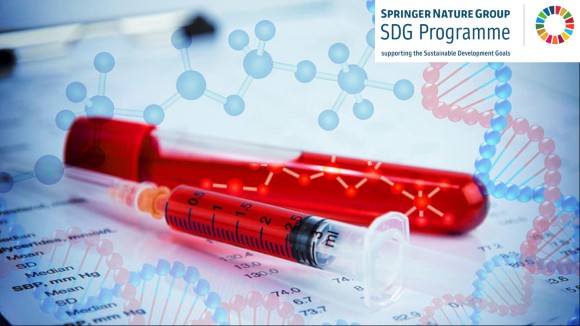 Dr. François-Clément Bidard, MD PhD, is Professor of Medicine in the Department of Medical Oncology at Institut Curie & UVSQ/Université Paris-Saclay. He is also the co-coordinator of breast cancer research at Institut Curie, the #1 center for breast cancer in France. His research aims at characterizing the cellular mechanisms involved in the metastatic process, with a focus on blood biomarkers (circulating tumor cells, circulating tumor DNA etc.).
Dr. François-Clément Bidard, MD PhD, is Professor of Medicine in the Department of Medical Oncology at Institut Curie & UVSQ/Université Paris-Saclay. He is also the co-coordinator of breast cancer research at Institut Curie, the #1 center for breast cancer in France. His research aims at characterizing the cellular mechanisms involved in the metastatic process, with a focus on blood biomarkers (circulating tumor cells, circulating tumor DNA etc.).
 Dr. Jorge S. Reis-Filho, MD PhD FRCPath, holds a joint medical degree from University of Porto, Portugal and Universidade Federal do Parana, Brazil. After finishing his histopathology training at the University of Porto, Portugal, he did his PhD on breast cancer molecular pathology at the Breakthrough Research Centre at The Institute of Cancer Research/ Royal Marsden Hospital in London, UK, where he was appointed Team Leader of the Molecular Pathology Laboratory in 2006 and, subsequently, the Professor and Chair of Molecular Pathology in 2010. In 2012, Dr. Reis-Filho took the position of Member at the Department of Pathology at Memorial Sloan Kettering Cancer Center in New York, USA, where he was appointed Director of Experimental Pathology and Director of the Experimental Pathology Fellowship Program in 2016. Dr. Reis-Filho has published over 600 peer reviewed articles, is a Deputy Editor a Deputy Editor of the Journal of the National Cancer Institute and of npj Breast Cancer, an Associate Editor of the Journal of Pathology, and a member of the expert panel of the World Health Organization for the classification of tumors of breast, soft tissue, skin and eyes. Dr. Reis-Filho has received several awards, including the CL Oakley Lectureship (2007) and the Goudie Medal and Lectureship (2023) by the Pathological Society of Great Britain and Ireland, the BACR Translational Research Award (2007), the Ramzi Cotran Young Investigator Award (2010) by the United States and Canadian Academy of Pathology and the Future Leaders Prize by Cancer Research UK (2010). Dr. Reis-Filho is the youngest ever Fellow of The Royal College of Pathologists to have become a member by published works. He has a long-standing interest and a track record in the genomic analysis of rare cancer types, as well as in characterization of the patterns of DNA repair defects and genetic instability in breast cancers. Dr. Reis-Filho co-leads the NIH MSKCC Genomics Instability in Breast Cancer SPORE, which seeks to deliver optimal treatments for cancer patients with specific types of DNA repair defects.
Dr. Jorge S. Reis-Filho, MD PhD FRCPath, holds a joint medical degree from University of Porto, Portugal and Universidade Federal do Parana, Brazil. After finishing his histopathology training at the University of Porto, Portugal, he did his PhD on breast cancer molecular pathology at the Breakthrough Research Centre at The Institute of Cancer Research/ Royal Marsden Hospital in London, UK, where he was appointed Team Leader of the Molecular Pathology Laboratory in 2006 and, subsequently, the Professor and Chair of Molecular Pathology in 2010. In 2012, Dr. Reis-Filho took the position of Member at the Department of Pathology at Memorial Sloan Kettering Cancer Center in New York, USA, where he was appointed Director of Experimental Pathology and Director of the Experimental Pathology Fellowship Program in 2016. Dr. Reis-Filho has published over 600 peer reviewed articles, is a Deputy Editor a Deputy Editor of the Journal of the National Cancer Institute and of npj Breast Cancer, an Associate Editor of the Journal of Pathology, and a member of the expert panel of the World Health Organization for the classification of tumors of breast, soft tissue, skin and eyes. Dr. Reis-Filho has received several awards, including the CL Oakley Lectureship (2007) and the Goudie Medal and Lectureship (2023) by the Pathological Society of Great Britain and Ireland, the BACR Translational Research Award (2007), the Ramzi Cotran Young Investigator Award (2010) by the United States and Canadian Academy of Pathology and the Future Leaders Prize by Cancer Research UK (2010). Dr. Reis-Filho is the youngest ever Fellow of The Royal College of Pathologists to have become a member by published works. He has a long-standing interest and a track record in the genomic analysis of rare cancer types, as well as in characterization of the patterns of DNA repair defects and genetic instability in breast cancers. Dr. Reis-Filho co-leads the NIH MSKCC Genomics Instability in Breast Cancer SPORE, which seeks to deliver optimal treatments for cancer patients with specific types of DNA repair defects.

